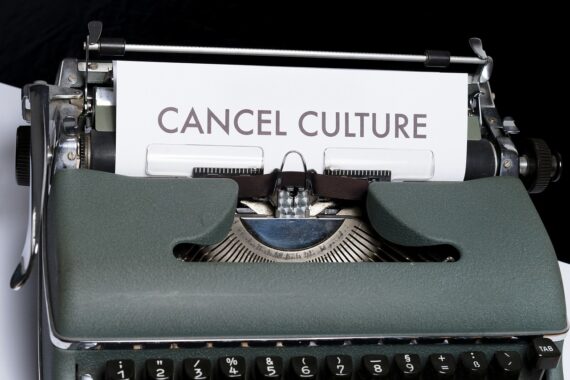Your cart is currently empty!

Cancel Culture and It’s Future
In the last couple of years, the term “cancel culture” has begun to rise in popularity, becoming a large part of internet culture. Dictionary.com defined cancel culture as, “The popular practice of withdrawing support for (canceling) public figures and companies after they have done or said something considered objectionable or offensive.” This term has become widely used among news and pop culture today.
This past August, the New York Times podcast, The Daily produced a two-part series on this topic, hosted by Michael Barbaro and guest Jonah Bromwich. The podcast discussed major events that resulted from the rise of ‘cancelling’.
The term ‘cancel’ originally began on Black Twitter around 2014, as Bromwich described. It was first used as a joke used by an internet character @joannethescammer, using the word “cancel” instead of saying, “I’m done with it.”
By 2018, the word cancel had moved from a joke to a more literal term. For example, James Gunn one of the multimillion dollar director for The Guardians of the Galaxy, posted something that was anti-trump on Twitter. Fans of the President Trump got upset, which resulted in several tweets resurfacing from several years prior. Gunn’s Tweets joked about the holocaust, AIDS, and sexual assault. Ultimately, this resulted in Disney releasing Gunn from directing The Guardians of the Galaxy 3 stating that, “His tweets are indefensible and inconsistent with our studios values.”
With the rise of the #MeToo movement, many women were coming forward about their personal experiences with sexual abuse and harrasemnt. Many of these allegations were of prominent men that were able to use their status to take advantage of these women. In 2017, sexual allegations started to come out against Harvey Weintsein. The cases against him resulted in several companies ending their connection to The Weinstein Company. This included Apple, Amazon, Lexus and Ovation, as well as four film organizations that dropped Weinstien’s membership. The #MeToo movement resulted in holding over 200 men accountable. This movement as well as the rise of cancel culture has led to more awareness and collective agreement to not tolerate this kind of activity.
The purpose of cancelling is to hold people accountable. Mostly for racist or inappropriate behavior, whether it was two days ago or twenty years ago. These call-outs have taken many high figures down from their pedestals. Now occurring mostly on Twitter, cancelling has been done collectively. Once someone makes a controversial statement or if an old tweet is brought up, people immediately flock to put their own opinion on the topic, fully prepared to ‘cancel’ the individual. Oftentimes it is a man-hunt to find the individual’s occupation, where they’re from and the school they go to. This is all to make sure that their colleagues know what they have done or said.
Barack Obama has even weighed in on the topic, stating that, “There is this sense some time that the way of me making change is to be as judgemental as possible about other people.” Specifically on social media, many feel as though they are more progressive, or ‘woke’ for calling someone out. However, it perpetuates an image that we need to be completely perfect, have a clean track record rather than ones with mistakes. Unfortunately, oftentimes canceling leaves no room for people to show growth, get a chance to realize and learn from what they have done wrong.
Through this past summer, the rise of Black Lives Matter protests and mask-wearing has bloomed on the internet. This has resulted in the increase in viral videos and posts on Twitter and Facebook. Videos of people refusing to wear masks in grocery stores and other populated areas have gone viral. Thousands of people have begun to find the individuals name and place of work, oftentimes resulting in the individual getting fired.
Yes, people should recive repercussions for bigoted acts, but is firing them from their job the best way? Currently being in a pandemic, Americans are already struggling to keep jobs. By firing these individuals, this results in their loss in income and healthcare.
With punishment should come education, but oftentimes when people get canceled they are left in the dust, deemed a helpless cause without resources to help them understand their mistakes.
It begs the question, how far is too far? Are people able to learn from their mistakes? Should an event that happened a decade ago reflect them now?
This zero-tolerance policy holds people accountable and advocates for change, but as our generation moves forward, is this a sustainable way to handle every controversial problem?

Leave a Reply